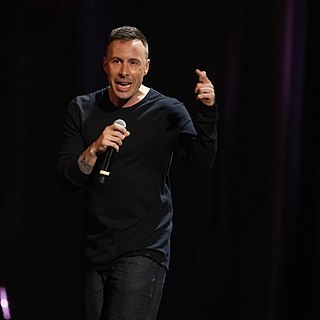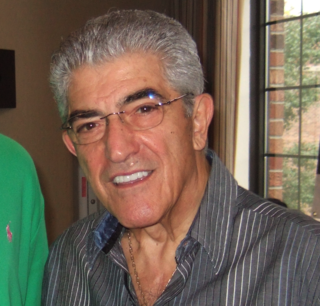A Quote by Robert Greene
You have the power to think differently about who you are. You have the ability to turn off the critical voice inside of you. That's not you. That's coming from the culture. That's coming from the outside of you. You've internalized the voice of your parents, your teachers, your friends.
Related Quotes
I am interested in levels of brain discourse. How articulate are the voices in your head? You know, there's a different voice for the phone, and a different voice if you're talking in bed. When you're starting off with a narrator, it's interesting to think, where is their voice coming from, what part of their brain?
If you choose to use your status and influence to raise your voice on behalf of those who have no voice; if you choose to identify not only with the powerful, but with the powerless; if you retain the ability to imagine yourself into the lives of those who do not have your advantages, then it will not only be your proud families who celebrate your existence, but thousands and millions of people whose reality you have helped transform for the better. We do not need magic to change the world, we carry all the power we need inside ourselves already: we have the power to imagine better.
We're always being told 'find your voice.' When I was younger, I never really knew what this meant. I used to worry a lot about voice, wondering if I had my own. But now I realize that the only way to find your voice is to use it. It's hardwired, built into you. Talk about the things you love. Your voice will follow.
Write like you write, like you can't help but write, and your voice will become yours and yours alone. It'll take time but it'll happen as long as you let it. Own your voice, for your voice is your own. Once you know where your voice lives, you no longer have to worry so much about being derivative.
In the consumer culture of marriage, commitments last as long as the other person is meeting our needs. We still believe in commitment, because we know that committed relationships are good for us, but powerful voices coming from inside and outside tell us that we are suckers if we settle for less than we think we need and deserve in our marriage. Most baby boomers and their offspring carry in our heads the internalized voice of the consumer culture-to encourage us to stop working so hard or to get out of a marriage that is not meeting our current emotional needs.
The trick now is to turn insight into foresight. The trick is to know this about your tomorrow, today... Remember, your future is not coming to you; it's coming through you...change your idea about the changes to come, even as you change your idea about the changes that have passed. Then you can change your experience of both.
I loved the idea of doing impressions and mimicking and playing around with the spectrum of your own voice. That's what I enjoy most about doing voiceovers. You can be completely unconscious with the rest of your body and just concentrate on doing something with your voice, creating an entire character with your voice.







































